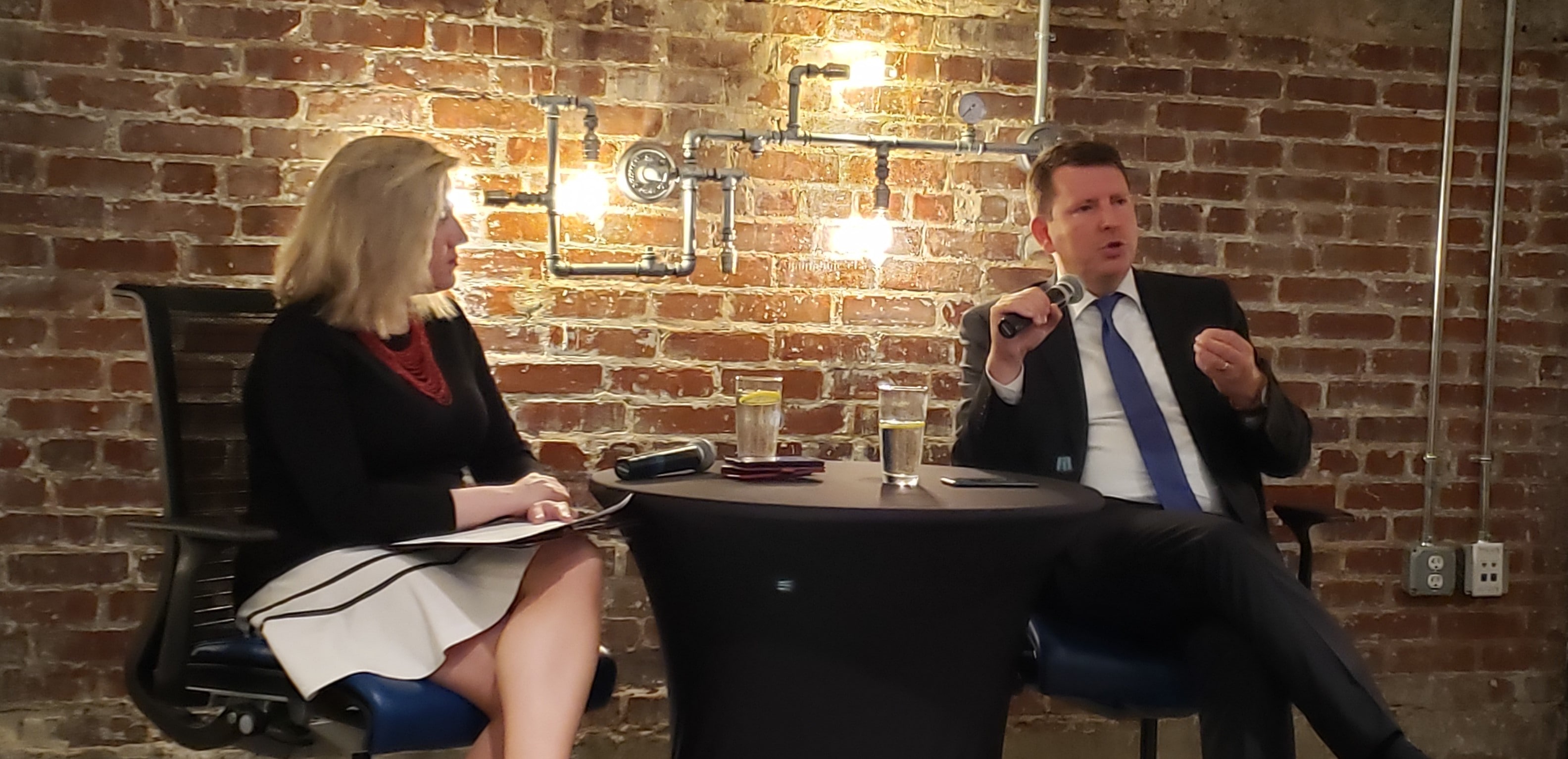
Ambassador Vseviov being interviewed by Washington Diplomat Managing Editor Anna Gawel.
The Washington Diplomat (www.washdiplomat.com) recently hosted Ambassador Jonatan Vseviov as part of its Ambassador Insider Series. The speaker series brings top diplomats, senior government officials, corporate executives, scholars, and other members of Washington’s broader community together in an intimate setting to exchange ideas and expertise, and to learn about the evening’s featured country.
The conversation with Ambassador Vseviov highlighted Estonia as a truly digital society. He described how Estonia bypassed the transition most countries undergo from legacy systems to digital systems because it was able to establish its new economy and government on digital platforms from the start, after the fall of the Soviet Union. He stated that Estonians are very innovative in the way the government has legislated how citizens interact with government agencies online, noting that Estonian citizens own their own data, which already exists online and is securely transferred among agencies as necessary to deliver services. While the digital environment is not 100% private, it’s better than keeping paper records because access to digital records is strictly tracked and logs are kept of all activity related to a file, as opposed to an unauthorized person opening a paper record and taking a photograph with a cell phone.
Ambassador Vseviov estimated that the government saves 2% of its GDP just by using digital signatures rather than paper. One example comes from Estonia’s very simple system for filing taxes. He told the story of Jeb Bush referencing Estonia in his 2016 campaign speeches, saying that Estonians file their taxes in five minutes. Bush was later called out by fact checkers who lowered his truthfulness rating because most Estonians could actually file their taxes in three minutes.
E-Estonia works because Estonians have a high level of trust in their government, largely thanks to its transparency and the respect with which it treats citizens’ data. Ambassador Vseviov noted that Americans are more willing to allow private companies access to their data and that, “things that happen on a daily basis here would be outrageous in Estonia.” He gave the example of receiving personally addressed advertisements in the mail only days after moving into his new home, something most Americans probably take for granted.
The Ambassador also explained that while the U.S. and other countries can learn from Estonia’s example, no nation can copy it exactly. In the case of the U.S., state governments often have roles held by the national government in Estonia, such as issuing driver’s licenses or recording property transfers. Several U.S. states have indicated interest in adapting and implementing systems based on the Estonian model. Ambassador Vseviov advised looking at the processes and learning from Estonia’s mistakes but not copying the methods exactly.
When asked about national security, Vseviov acknowledged that Russia poses a real physical threat. He believes that NATO is taking the threat seriously enough, as demonstrated by its emphasis on collective defense, deployment of more frontline forces, and many nations increasing their defense spending. It’s clear that Europe is at war, with the invasion of Ukraine as a fact of life. While the Kremlin is employing bots and digital attacks as part of its strategy against the West, Ambassador Vseviov observed that attacks “boil down to human beings and human psychology” engaging in cost-benefit analysis. Defense still requires a human element, on a personal level as well as nations building resilience on a national level.
Karin Shuey
Washington, DC Director
Estonian American National Council
www.estosite.org














